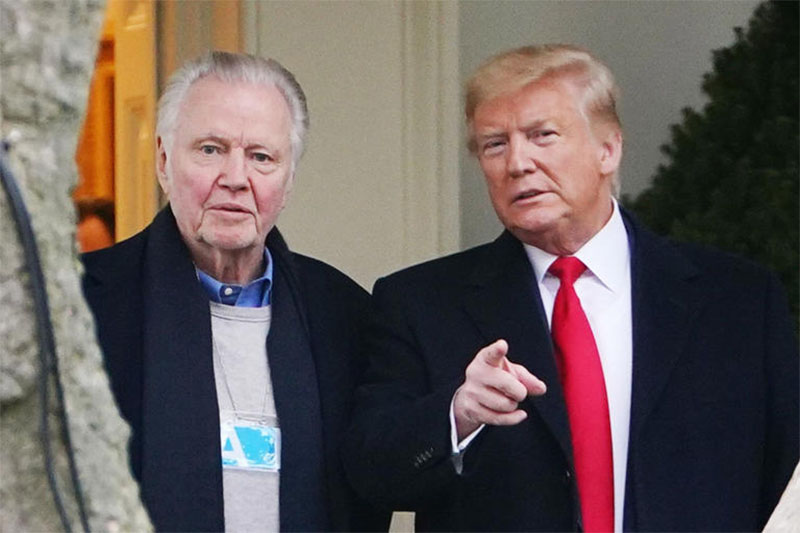
Photo Credit: Getty Images
Veteran actor Jon Voight has burst into new political prominence with a bold plan that aims to remake Hollywood’s future. Unveiled in recent days to Donald Trump at Mar-a-Lago, Voight’s plan is designed to return film and television production to American soil through the intersection of strong federal incentives and harsh penalties for outsourcing.
Central to Voight’s “Make Hollywood Great Again” plan is a federal production tax credit of 10% to 20% for home-based productions. These tax credits would be additive to existing state incentives in California, Georgia, New York, and others. The hope is to encourage domestic production to be less expensive and more attractive than foreign production. Voight’s government argues that states possess competitive incentives but these are inadequate to curb the loss of projects to lower-cost foreign markets.
To make this point, the proposal places a pointed stick in the sand: any U.S.-based production that chooses to shoot abroad and takes advantage of foreign tax incentives would be hit with a 120% tariff on the value of the incentive. The proposal targets content produced for theatrical release, broadcast TV, cable, streaming platforms like Netflix, Disney+, Amazon, and even digital-first content on YouTube and social media.
But Voight’s plan doesn’t stop there. He’s advocating for a return to an earlier iteration of the Financial Interest and Syndication Rules — decades-ditched regulations that once limited how much programming networks could own. The goal is to level the playing field between powerful streaming giants and individual producers. Voight’s described current-day licensing practices as “draconian,” arguing that Netflix and Amazon have too much influence.
Also, the policy requires the use of a cultural test — such as in Britain and Canada — to ensure that content funded at the federal level contains some amount of minimum American cultural content. This could involve using American stars, depicting American subjects, or being based in America.
The proposal has elicited biting responses across the industry. California Governor Gavin Newsom acknowledged the potential for a national incentive program and expressed the possibility of collaboration, while Hollywood industry executives are divided. Some are fearful of the creative and economic restrictions caused by tariffs, such as actress Whoopi Goldberg, who warned that such measures might “limit storytelling and collaboration.”
Albeit no White House backing is yet on board, Trump’s recent call for an across-the-board 100% tariff on all foreign-made movies shows he’s listening to the plan’s heart. Whether or not Voight’s fantasy takes policy form remains to be seen, but it already has heated people arguing about the future of Hollywood’s place in the world.
















